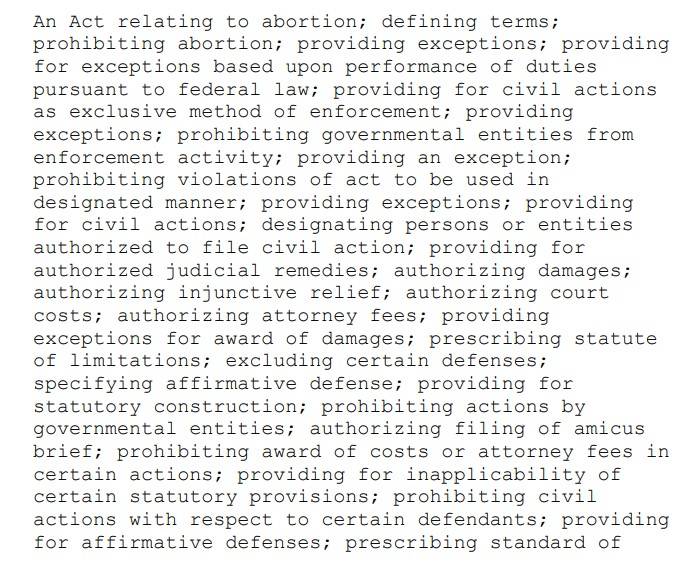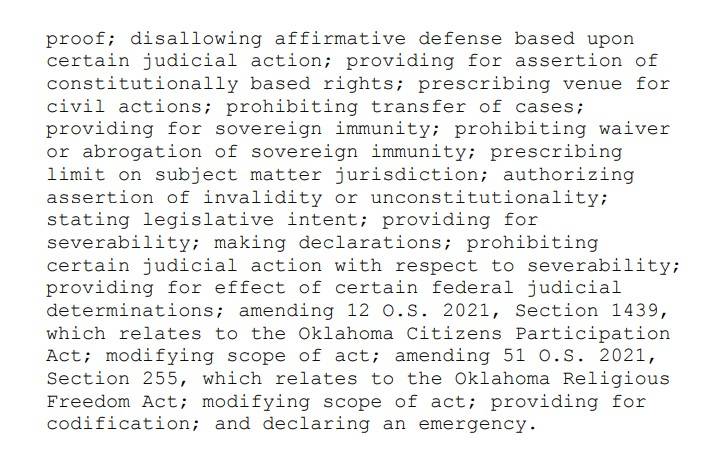On Thursday Oklahoma lawmakers approved HB 4327 banning nearly all abortions. The bill would also allow people to sue anyone who helps a woman terminate a pregnancy.
House Bill 4327 makes almost all abortions illegal from the point of fertilization, which is defined as “the fusion of a human spermatozoon with a human ovum.”
It includes exceptions for abortions to save the life of the mother “in a medical emergency,” or if the pregnancy resulted from “rape, sexual assault, or incest that has been reported to law enforcement.”


HB 4327 would be effective immediately when Governor Kevin Stitt signs it into law making Oklahoma a safe haven for unborn children.
The Republican-backed legislation bans abortion from the moment of “fertilization,” making exceptions only in cases of medical emergency, rape or incest. The bill text says it does not prohibit the use of contraception or emergency contraception.
HB 4327 comes weeks after a draft opinion from the Supreme Court was leaked overturning Roe V Wade. The popular misconception for this opinion is that abortion will be outright banned. This is simply not true. Overturning Roe V Wade will give rights back to the states and there are currently only 21 states that are planning on enacting certain abortion bans. Oklahoma is one of them.
A draft opinion leaked earlier this month showed the court’s conservative majority intends to overhaul federal abortion rights and send the issue of legalization back to individual states.
Oklahoma quickly became a destination for Texas women seeking abortions after six weeks. But the enactment of Oklahoma’s own six-week ban this month has severely limited abortion services the state’s four clinics can provide.
Stitt signed another bill that will make performing an abortion a felony punishable by up to 10 years in prison. That will take effect later this year.
The legislation is similar to a Texas bill that provides for civilian enforcement rather than being enforced by the state. It incorporates this civil action protocol by allowing “[a]ny person, other than the state, its political subdivisions, and any officer or employee of a state or local governmental entity in this state” to bring a civil action against anyone who:
- Performs or induces an abortion in violation of this act;
- Knowingly engages in conduct that aids or abets the performance or inducement of an abortion, including paying for or reimbursing the costs of an abortion through insurance or otherwise, if the abortion is performed or induced in violation of this act, regardless of whether the person knew or should have known that the abortion would be performed or induced in violation of this act; or
- Intends to engage in the conduct described by paragraph 1 or 2 of this subsection.
